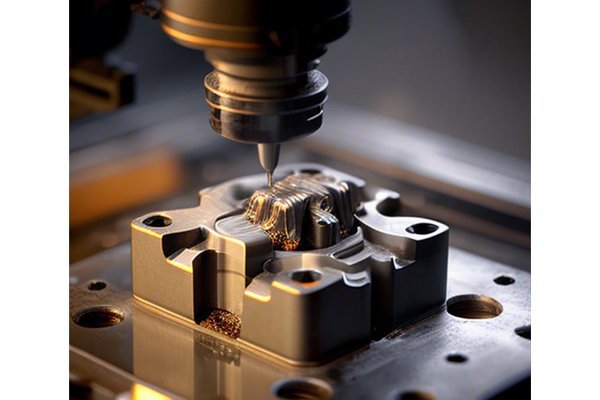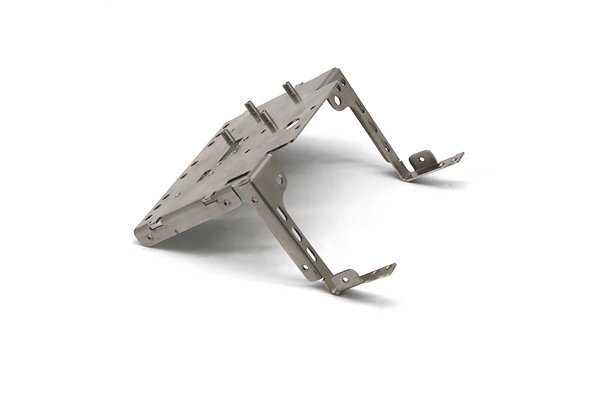In the ever-evolving landscape of manufacturing, one question increasingly resonates within the industry: Can CNC processing plants adapt sufficiently to meet the demands for customized production, especially when faced with varying batch sizes? This inquiry not only highlights the pressing need for flexibility in modern manufacturing but also underscores the significance of technology in enhancing production capabilities. In this blog, we will delve deep into how CNC (Computer Numerical Control) processing plants are equipped to tackle the challenge of customizing production according to batch sizes, ensuring efficiency and precision.
The Rise of CNC Technology
CNC technology has revolutionized the manufacturing sector. Transforming how companies design and produce parts, CNC machining operates with enhanced accuracy and speed. The process begins with a digital model, which is precisely translated into commands for machines, allowing for the production of intricate parts that were once deemed impossible. As businesses demand customized products, CNC processing has emerged as a go-to solution, enabling manufacturers to cater to individual client needs while maintaining high production standards.
Understanding Batch Sizes in CNC Processing
Before addressing how CNC processing plants can accommodate numerous batch sizes, it’s vital to understand what these sizes entail. Batch size refers to the volume of production for a given manufacturing process. It can vary significantly, ranging from large-scale production runs of thousands of identical units to small batches comprising only a few pieces. Each batch size presents unique challenges and advantages, and recognizing these distinctions is crucial for CNC processing plants aiming to thrive in a competitive marketplace.
Large Batch Production
Large batch production benefits from economies of scale, reducing per-unit costs and ensuring consistency across products. However, the challenge lies in the initial setup and production time. With vast quantities of parts being produced, any errors in design or machining can lead to significant financial losses. Manufacturers must invest in rigorous quality control measures to minimize risks.
Small Batch Production
On the other hand, small batch production emphasizes flexibility and customization. Unlike large runs, small batches allow for unique designs tailored to customer specifications. The challenge arises from the need for quick setup and changeover times, as well as maintaining production efficiency despite lower volumes. CNC machining shines here, offering the ability to seamlessly switch between different designs without sacrificing quality.
Solutions for Meeting Customized Production Needs
CNC processing plants are increasingly adopting advanced software solutions capable of handling complex designs and batch variations. These tools allow manufacturers to optimize their production processes based on real-time data, minimizing idle time and improving precision. Manufacturing Execution Systems (MES) can help factories track workflow progress, predict potential delays, and optimize the overall production schedule.
Modern CNC machines are built for versatility. Multi-axis CNC machines can perform various operations such as milling, turning, and drilling, all in a single setup. This flexibility is crucial for small batch production, where quick changes are necessary. Additionally, the integration of collaborative robots (cobots) with CNC machines enables efficient production workflows, adapting to changes with minimal disruption.

CNC processing plants are increasingly utilizing modular production layouts, which can be easily reconfigured based on demand. This adaptability allows manufacturers to efficiently manage different batch sizes, dedicating more resources to larger runs while maintaining output for smaller orders. By reorganizing workstation placements and materials handling areas, efficiency can be maximized while remaining responsive to order fluctuations.
One of the standout benefits of CNC machining is its compatibility with rapid prototyping. This approach allows manufacturers to produce prototypes quickly, enabling iterative design and testing before full-scale production. As a result, companies can embrace customization without incurring substantial costs associated with tooling changes or design revisions.
Effective inventory management is key to successfully navigating varying batch sizes. CNC processing plants benefit from Just-In-Time (JIT) inventory strategies, reducing waste and ensuring that materials are available precisely when needed. By analyzing sales forecasts, manufacturers can optimize inventory levels, reducing storage costs and allowing for a quicker response to changing customer demands.
Employees are an invaluable asset in the manufacturing process, and equipping them with the necessary skills is paramount. Continuous training in CNC technologies, software applications, and machine operation not only enhances productivity but also fosters an innovative work culture. Workers can develop solutions to pressing challenges, allowing CNC processing plants to remain competitive and flexible.
Case Studies: Successful Implementation of Customized Production
The implementation of customized production solutions can be seen in various sectors, from aerospace to automotive. For instance, a prominent aerospace manufacturer utilized advanced CNC technology alongside rapid prototyping methods to transition from a traditional production line to a flexible manufacturing system. The result was a remarkable reduction in lead times for customized parts, enabling the company to respond more rapidly to engineering changes and customer needs.
In the automotive industry, a car manufacturer integrated modular CNC machines to accommodate seasonal demand fluctuations. By reconfiguring their production setup and embracing quick-change tooling systems, they were able to effectively address varying batch sizes for both mass and customized productions. The outcome? Increased production efficiency and heightened customer satisfaction.
In summarizing the capabilities of CNC processing plants to meet the demands of customized production, it is clear that flexibility is the cornerstone of successful modern manufacturing. By leveraging advanced technology, adaptable machinery, efficient workflows, and a skilled workforce, CNC machining facilities not only enhance productivity but also cater to diverse market needs.
As manufacturers navigate the challenges of an increasingly customized world, the ability to produce at varying scales without compromising on quality or efficiency will remain essential. Exploring and investing in CNC technology can empower enterprises to stay ahead of competitors, serving as a critical pathway to success.
In today’s fast-paced business environment, pondering the merits of CNC processing’s flexibility is not just valuable but vital. The ability to adapt to varied batch sizes speaks to the broader need for responsiveness and innovation in our ever-changing world of manufacturing. Companies that prioritize this adaptability are setting themselves up for a future of sustainable growth and success.
—






